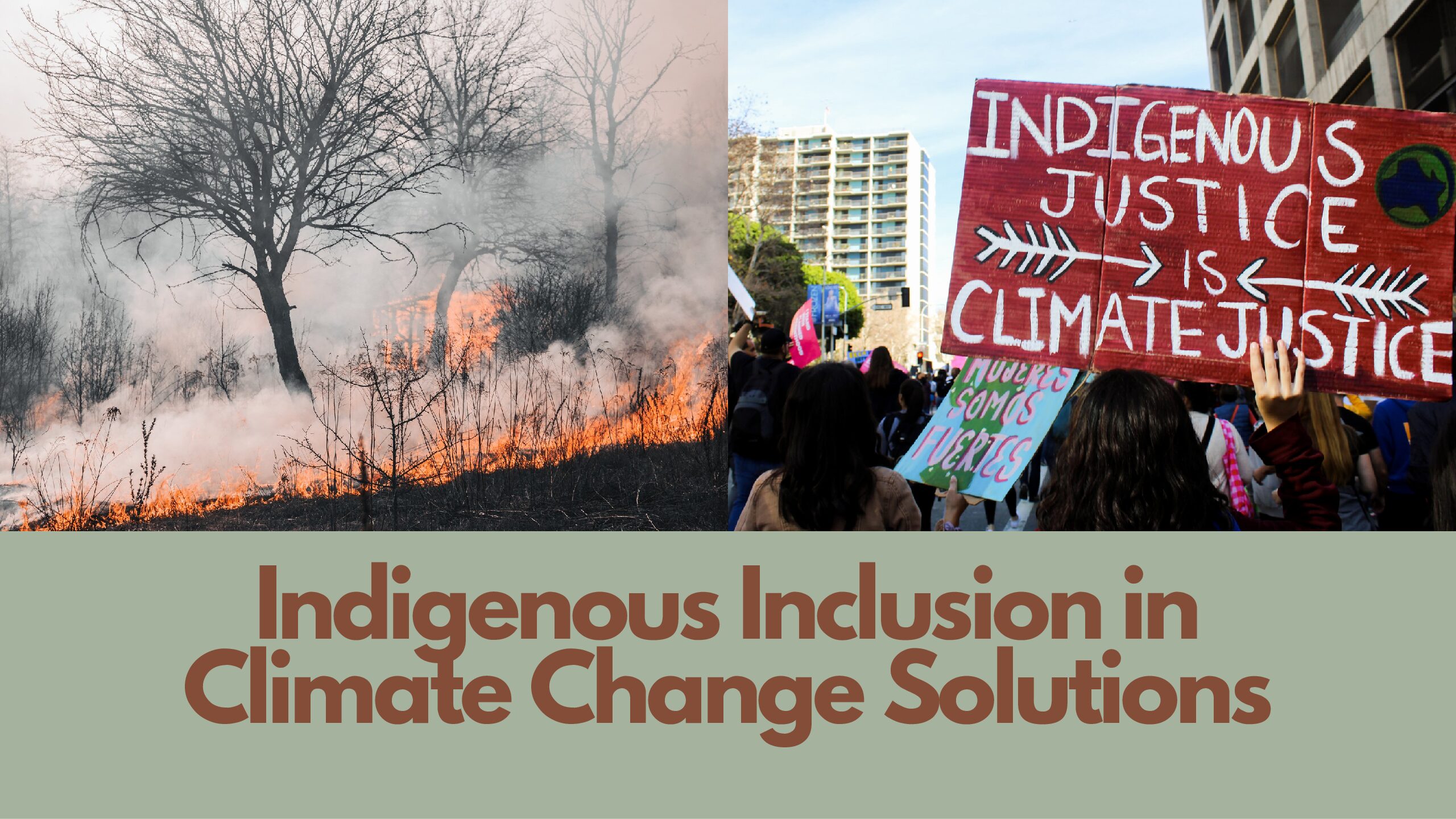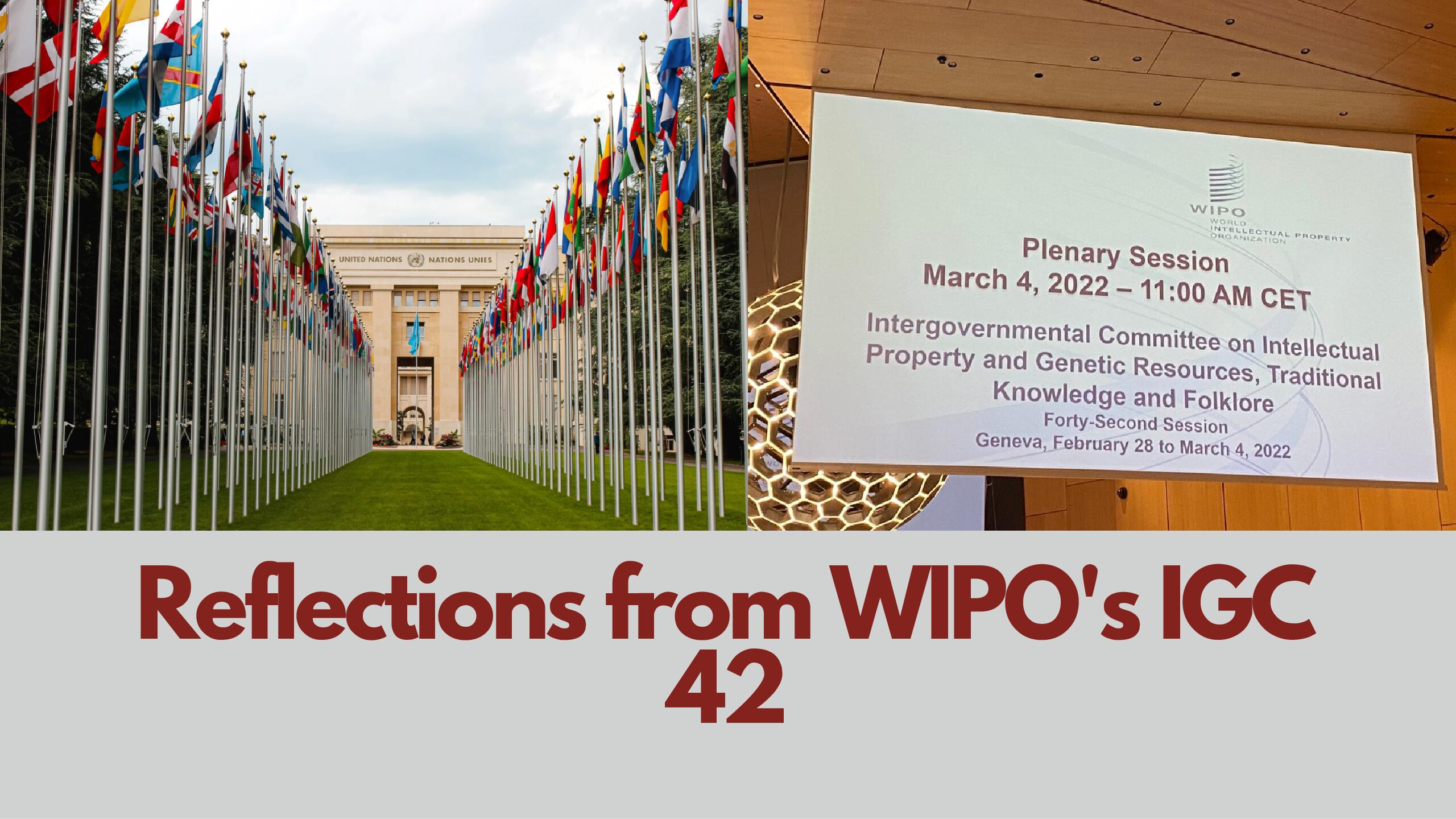Climate Change and Indigenous Peoples: Disproportionate Impact and Opportunities for Inclusion
Earth’s climate is changing in ways never seen before. The global average temperature has risen and changing weather patterns have become increasingly more volatile. These changes, brought on by increased greenhouse gas emissions, threaten the health of ecosystems, economies, and societies. The impacts of climate change are wide-ranging and global, with examples ranging from increased wildfires, food insecurity due to poor crop yield, and forced migration following rising sea levels, droughts, and other abnormal precipitations.
In the face of these changes, Indigenous peoples and communities are heavily impacted through changes in lifestyle and knowledge. However, Indigenous peoples and Indigenous traditional knowledge (ITK) may hold part of the important keys to fighting climate change for the benefit of the planet.
The Disproportionate Impacts of Climate Change on Indigenous Communities
While climate change impacts all of Earth’s inhabitants, certain populations are more vulnerable to climate-induced extreme changes to their lifestyles as they bear a greater burden. While Indigenous peoples as a population contribute less to greenhouse gas emissions, climate change poses a large threat to many Indigenous communities worldwide. On a physical level, climate change threatens the settlements and livelihoods of Indigenous communities. Many Indigenous peoples are involved in traditional agricultural practices and reside in remote rural locations. Climate change has decreased crop productivity, as cropping seasons get disrupted by extreme weather conditions. Forest fires, drought, and flooding have limited access to land, further decreasing economic prospects and endangering livelihoods. Pastoralism, fishing, hunting, gathering, and a whole host of subsidence activities are threatened. Indigenous persons worldwide are overrepresented in poverty and food insecurity, and a changing climate will only aggravate the destabilization of the community’s livelihoods and economies. There are limited options for many Indigenous peoples because agriculture is not only a way of life but also a part of Indigenous identity which is tied to their relationship with the land. Many Indigenous peoples face discrimination from traditional work, due to racism and a multitude of other social and economic inequities.
On a cultural level, climate change threatens the unique relationship with the land and waters that many Indigenous peoples hold. Traditional lifestyles and ways of living have been deeply impacted by a changing climate. Migration patterns have shifted in response to factors such as forest fires, erratic seasons, challenging hunters due to changing patterns and deepening cycles of food insecurity. Long-held knowledge and traditions, deeply rooted in Indigenous peoples’ history and connection to the land, have changed with the climate. While ITK is not a static form of knowledge, as it is constantly evolving, the rapid rate of change posed by the current climate-driven environmental crisis has created barriers to evolution. However, as much as the current climate and ecological state of the earth have challenged traditional knowledge, ITK is increasingly relevant to fighting climate change.
ITK in Fighting Climate Change
The traditional knowledge of many Indigenous communities holds information on the land; how to manage, develop, and live in harmony with the ecological surroundings. Traditional knowledge is a compliment and asset to scientific inquiry, as ITK on weather, migration, and other patterns should be added to data sets and studies on climate change over time, ensuring the accuracy and scope crucial for verifying climate models. Western scientists continue to be awed by the sophistication with which ITK unravels complex climate phenomena and offers a diversity of critical thinking. Resilience and adaptation are built into many Indigenous knowledge systems. ITK offers a community-based model for climate-sensitive governance, resource management, and global interconnectedness. Indigenous communities worldwide have unique knowledge and perspectives on the roots of climate change and the way forward into a more sustainable future. Perhaps, most importantly, ITK is anchored on the ethics of sustainability and spirituality of humanity’s humble and interdependent relationship with natural forces.
On a local level, Indigenous communities and ITK should be given decision-making sovereignty to govern and manage traditional lands in a culturally appropriate and ecologically sustainable manner. For example, some Indigenous communities in North America have recognized the need for renewable energy and utilized their land to build wind energy infrastructure, supporting clean energy in their community and the surrounding areas. This is a testament to adaptation and collaboration across knowledge systems which has become critical for dealing with climate change. Removing barriers to sovereign land management is key to combating climate change and promoting reconciliation with Indigenous communities.
On a national and global level, Indigenous peoples and communities must be included in policy discussions on climate action and climate resilience frameworks. The UN’s Intergovernmental Panel on Climate Change has noted and reaffirmed in multiple reports that Indigenous knowledge holds invaluable insights in developing resilience strategies and natural resource management schemes. Including Indigenous communities and promoting Indigenous expertise in the policy-formation stage will broaden the diversity of insights and paradigms of policy to harness knowledge in the fight against climate change.
Integrating ITK in Climate Responses
Despite the promise that ITK holds in combatting climate change, there has been limited integration of Indigenous perspectives worldwide in domestic and international climate change policies. In some cases, such as in Reducing Emissions from Deforestation and Degradation (REDD/REDD+) initiatives, the rights and abilities of Indigenous and Local communities to manage their own land are neither integrated, nor optimized. This approach further disempowers and marginalizes Indigenous voices in land management practices at a time when the value of ITK is being touted.
Nonetheless, there is a growing trend of recognition and inclusion initiatives of ITK in climate policy in some quarters. These include those ranging from large-scale international organizations to grassroots NGOs, now increasingly involving Indigenous communities in climate change activism. In Canada, communities are being recruited to monitor and record weather patterns and wildlife data to aid researchers. Such initiatives would work better if sensitivity and regard is given to ITK insights in addition to making Indigenous peoples equitable partners in such initiatives. UNESCO has created the LINKS (Local and Indigenous Knowledge Systems) program to promote the inclusion of “understandings, skills and philosophies developed by societies with long histories of interactions with their natural surroundings” in policy circles.
ITK has long been marginalized in the face of the Western-dominated scientific paradigm and shifting this hegemony has and will continue to require a growing awareness and buy-in from the scientific and policy communities. To facilitate inclusion, there must be a push to protect and promote the importance and validity of ITK as a valuable knowledge system and source of policy direction. As Indigenous communities continue to bear the disproportionate burden of climate change, protection and promotion become increasingly important over each passing day.
Conclusion
The Earth’s changing climate is one of the existential challenges of the present and coming years and every resource available will be needed to combat climate change’s adverse effects. While Indigenous peoples have most to lose due to climate change, their traditional knowledge is an asset in the scientific study of climate change and the fight to enact effective and sustainable climate policy occurring on local, domestic, and international levels. On all levels of efforts to tackle climate change, ITK should be recognized as a valuable resource and Indigenous peoples should be engaged to the greatest extent. Conventional Western industrial and capitalist approaches to resource management have failed or, more mildly, have proven unsustainable. Diversity in knowledge production, including equitable and respectful collaboration with alternative knowledge frameworks hold one of many keys to unlocking the Earth’s sustainable future and pulling back from a truly gloomy climate catastrophe.







